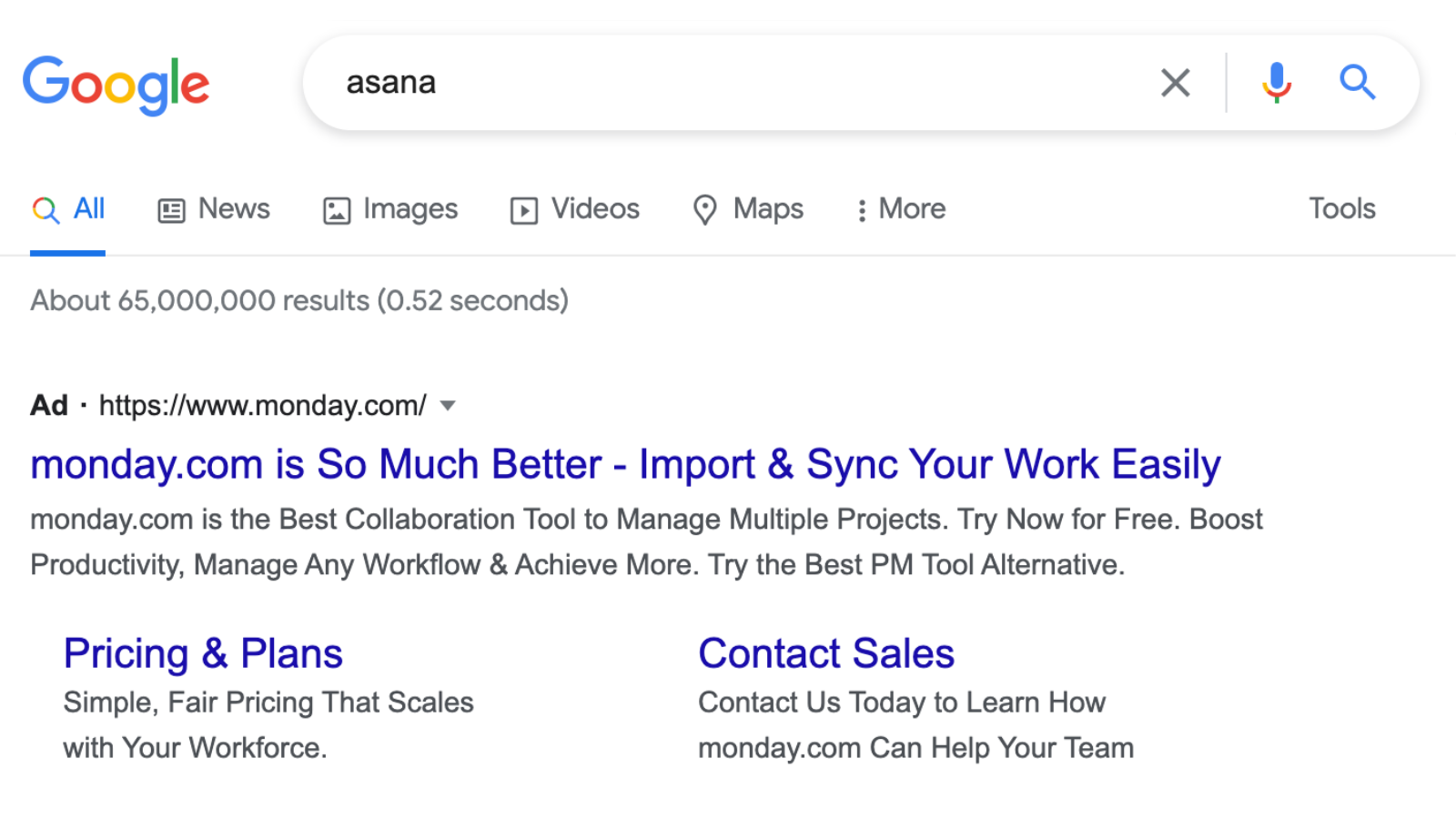In PPC advertising, brands can choose to bid using their direct competitors as keywords. A debated tactic, it can pose some risks, but also pay off.
Andrew Franks, Director at Manchester-based accident management firm Claimsline, has extensive experience using competitor bidding. Here, he shares his insights, and how it can work for you.
Across industries, bidding on competitor keywords has been a common practice in Google Advertising for over a decade.
However, it came under fire in 2018 when, without controls and checks in place, many began deliberately misleading potential clients. By using their competitors’ trademarks in their URLs, businesses were able to pose as their competitors. This became a particularly contentious method in the insurance industry.
But businesses should not be afraid of competitor bidding. For many, bidding on competitor keywords can be a valuable way to reach new audiences, differentiate your business and increase brand awareness. You do, however, need to be aware of the landscape in order to make informed decisions.
For Claimsline, competitor bidding has enabled us to reach over 20,000 customers. It’s helped to grow our revenue from £1.43 million in 2019 to a forecast of £8 million this year. By successfully completing all of our Google verification requirements, we now hold a Google MCC master account, with all of our in-house Google Ads managers earning the Adwords accreditation.
What can competitor bidding do?
The first main benefit of competitor bidding is increased exposure. By giving you more overall impressions, you’re put in front of more potential customers.
This can include customers who are coming in blind, with no prior awareness of your brand, who can sometimes be a tricky audience to reach.
The second is relevance – it’s no good having exposure if it isn’t to the right audiences. When done right, competitor bidding can help you reach potential customers with a really specific need.
By adding competitor search terms to your existing keywords, you’ll become visible to relevant customers and can begin transforming impressions into leads.
Finally, you can stand out. A good ad can make all the difference when sealing the deal with a potential customer.
The right copy on a Google ad will clearly demonstrate to your targets why they should choose you, and what you’re able to offer that your competitors can’t.
Caution with competitor bidding
However, when it comes to costs, ad bidding can be expensive – particularly if you end up in a bidding war. Before establishing a competitor bidding strategy, think about whether you can afford to compete if your competitors retaliate by bidding on your keywords.
Google Ads also gives you a Quality Score rating based on three components, one of which is landing page experience.
As your landing page is unlikely to mention your competitors, this could result in a reduced score. That’s why it is important to ensure you use other keywords in conjunction with competitor terms.
How to maximise your impact
Copy is king. As the first thing potential customers see, your ad needs to grab their attention, and quickly demonstrate why they should choose you.
With competitor bidding, you need to show what it is you can offer that the competitor they are intending to go with cannot.
Next, be specific. To avoid spending a lot, or wasting money on irrelevant searches, be as specific as possible.
By combining competitor search terms with your own key words, you can filter out your views as much as possible to ensure you are reaching the right audience that will convert to sales.
And keep compliant – while Google has no rules against bidding on brand keywords, although it does restrict the use of trademarked names within ad copy, you should still exercise caution.
When working with third parties, always ask how long they have held their Google Ads account as this will give a good indication on how ethically they are generating their work. Additionally, by performing a site audit on where the provider is generating the work from, you can ensure that this matches the Google Ads account and FCA Register.
For Claimsline, competitor bidding has been a real asset as we have sought new customers.
Alongside our existing network of bodyshops, brokers and website enquiries, competitor bidding through Google ads has enabled us to capitalise on the services we offered that our competitors fell short on, and enabled our customers to make informed decisions on why to choose us.











